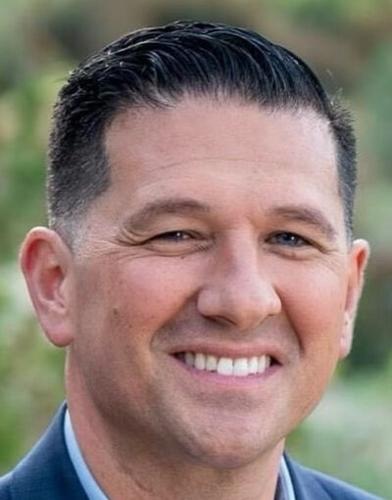San Mateo County supervisors have set their sights on ending poverty in the county and have appointed supervisors Noelia Corzo and David Canepa to a subcommittee meant to help study methods for reaching their goals, one of them being a guaranteed income program.
“I do see it as an arrow in the quiver for the county to explore,” Supervisor Ray Mueller said during Tuesday’s Board of Supervisors meeting.
Corzo and Canepa’s appointment to the subcommittee came during an agendized discussion on guaranteed income programs. As Assistant County Executive Peggy Jensen explained, GI programs are aimed at uplifting people living in poverty by providing a set amount of money for a specified period of time.
A growing number of GI programs have been established throughout the state, over the years, including one by the county to help undocumented families shut out of federal and state COVID-19 aid and another in South San Francisco for low-income earners.
County officials from the Human Services Agency and County Health proposed another GI program, in 2022, that would have provided 62 foster youth and 256 pregnant women $1,000 a month for 18 months. However, that proposal was not selected for state funding and neither was an application from South City to extend its program.
Board President Dave Pine and Supervisor Warren Slocum, who brought the issue forward for discussion, said the matter was still important to discuss given the financial difficulties many residents continue to face after the pandemic, which could be exacerbated by a potential recession.
“I hope that you’ll keep an open mind,” said Slocum who noted he had received emails from people against the establishment of a GI program. “I know you will, and realize this is an important program that should have our energy.”
Each supervisor expressed their interest in pursuing a GI program while also highlighting their concerns about making lasting changes to the quality of life of the county’s most vulnerable residents.
Canepa said the county would need to figure out how to scale the program it established for immigrant families. That program, launched last February, and backed by a $3.2 million contribution from the San Mateo County Children’s Health Initiative Trust Fund, provides 500 immigrant families with $400 per month for a period of 12 or 14 months. To qualify, participants had to be low-income earners who were ineligible for state or federal relief programs during the pandemic.
“We were really trying to stay narrow and focused and make sure we were hitting the people who needed it the most,” Canepa said. “I’m glad we’re moving in this direction. I just think we need to scale.”
Mueller said he liked the idea of piloting a GI program but wanted to learn more about whether such projects were actually uplifting people out of poverty rather than just providing temporary relief. Among his concerns was the limited time period in which someone could qualify for the program and the limited duration of participation.
He initially suggested the county could consider supporting South City’s program and a study into its effects on participating residents but pulled back the suggestion given that the city hadn’t asked for funds. The idea could end up coming back later, Mueller noted, after the subcommittee has had a chance to dive into the issue.
“The idea is not just to bring an infusion of cash to someone’s life, which we know will improve their life. The point is to try to change their life,” Mueller said.
Echoing Mueller, Slocum said the board should take a “broader view” and approach the issue of poverty as it did homelessness. County officials have routinely discussed their objective of reaching “functional zero,” which means homelessness would be brief and never chronic and recently hosted a summit to discuss ideas for reaching their goal.
Slocum suggested the board direct County Executive Officer Mike Callagy to study the matter and that the board establish its subcommittee to which Callagy said he and his staff could return with a more comprehensive package.
“It needs to be elevated to the top of the list. It needs to be focused,” Slocum said. “It’s a big job. I know we can do it.”
Corzo advocated for tackling both a GI program and a deeper study into poverty at once, suggesting the county not let “perfect be the enemy of progress.” She also suggested looping in the voices of those a GI program would serve in future studies.
County Executive Mike Callagy said the county has already established a study group of residents who are likely to be impacted by a recession that’s meant to help understand what types of interventions would be helpful if the economy takes a turn and said the group could do double duty by providing input on other anti-poverty efforts.
Though in strong support of the board’s objectives, Corzo also sought to temper the board’s goal of “ending poverty” by noting the objective is a challenging one many have attempted to advance.
“I want to be mindful that we don’t oversimplify it,” Corzo said. “It’s actually very complicated and if it was easy to do it would have been done.”
























(3) comments
Not even three weeks into the new year and yet another example of elections have consequences. In this case, dire consequences to San Mateo County taxpayers via lighter wallets. Now, if these supervisors and others of like mind decided to donate more of their money to their Gastro-Intestinal cause du jour, perhaps others might take the cause seriously. But what are the chances? It’s easier to spend other people’s money. Now, how can folks game the system? Say you’re a pregnant man? Renounce your US Citizenship?
Terence - it is easy. One can now self-identify as a Black, a woman or a triple non-binary. By law one cannot be forced to verify status or tell age so all you would have to do is scroll the internet and see which status provides the most benefit. The organizations that dole out the funding are enticed to sign up as many as possible, so no questions asked.
Thanks for the advice, Dirk. That’s probably how criminals swindled $30 billion from the EDD. Now, I can’t recall if my dog has an SSN but if he does, perhaps I’ll sign him up. He doesn’t need to self-identify as brown; the AKC says he’s chocolate. Not sure what triple non-binary is, but I’ll check that box too if I ask my best friend to shake and he does.
Welcome to the discussion.
Log In
Keep the discussion civilized. Absolutely NO personal attacks or insults directed toward writers, nor others who make comments.
Keep it clean. Please avoid obscene, vulgar, lewd, racist or sexually-oriented language.
Don't threaten. Threats of harming another person will not be tolerated.
Be truthful. Don't knowingly lie about anyone or anything.
Be proactive. Use the 'Report' link on each comment to let us know of abusive posts.
PLEASE TURN OFF YOUR CAPS LOCK.
Anyone violating these rules will be issued a warning. After the warning, comment privileges can be revoked.